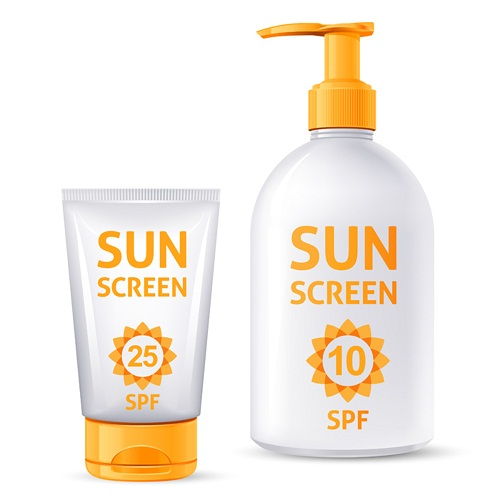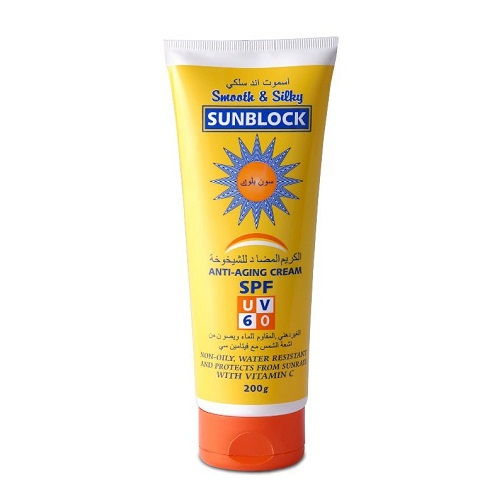Sunscreen vs Sunblock | Styles At Life

There are various skin care products available in the market these days ranging from lotions to creams to gels to talcum powder and so many more. The skin care products even vary according to the seasonal changes. Two of the most popular and commonly used skin care products during the summers are Sunscreen lotion and Sunblock lotion. It’s a common myth among people that sunscreen and sunblock are two names to a same thing. Well, in reality, they are absolutely two different things which appear to be similar. Let’s find out in details the difference between the two products.
Sunscreen:

Sunscreen lotions are formulated to guard your skin against the harmful UVA rays of the sun. It helps to absorb the harmful UV radiations and minimalize the amount that reaches the skin. UVA rays of the sun generally cause damage to the outer layer of the skin, resulting the skin to age and form wrinkles. Sunscreens generally contain ingredients like octinoxate, oxybenzone, octisalate, benzophenone and methyl anthranilate. It is always advised to apply sunscreen at least 30 minutes before going out into the sun because the lotion needs time to be absorbed into the skin in order for it to function properly. Moreover, it even needs to be reapplied after swimming or excessive sweating. According to experts advise, it is always recommended to use a sunscreen with a Sun Protection Factor of 15. Sunscreens are a great option for those with normal skin type.
See More: Best Sunscreen For Acne Prone Skin In India
Sunblock:

Sunblocks are similar to that of sunscreen lotions but have a wider use. Sunblock are especially designed to prevent UVB rays of the sun from damaging our skin apart from also being a shield to UVA rays. Sunblocksdo not let the radiations reach the skin and when applied on the skin, a thick layer remains visible which is difficult to wash off as compared to sunscreen lotions. The UVB rays of the sun are way more harmful than UVA rays and can potentially cause skin cancer as the radiations reach deep within the layers of the skin. Sunblock helps to keep these harmful radiations at bay. The ingredients used in a sunblock are generally metallic ingredients like titanium dioxide, zinc oxide and iron oxide. One does not need to wait after applying sunblock because as soon as it is applied on the screen, it becomes effective. So, sunblock can be applied right before stepping out into the sun and since it remains on the surface of the skin and does not wash away easily, it does not need to be reapplied. Sunblocks are more recommended to people with sensitive skin and physically active people. People who are exposed to sun most of the times such as sportsmen, construction workers and more should opt for a sunblock as it protects from both UVA and UVB rays of the sun.
See More: Best Sunscreen For Tanning
What To Choose?
If you are in a dilemma and aren’t sure which one to choose between the two since now you know that sunscreen and sunblock are different, a few tips might help you to clear out the confusion. It is important to know the skin type. Sunscreens work fine for normal skin type but for those with sensitive skin, sunblocks are a must. Also, your occupation and number of hours in the sun should determine your choice. People who are exposed for long hours to the sun like sportsmen, construction workers and more should go for sunblock and for those who stay indoors mostly, sunscreens would be fine. Even during exercising like swimming or running, sunblocks are recommended because physical acitivities include sweating and since sunblocks do not wash off easily, it will be helpful then. Always protect your skin from sun’s radiations by wearing a sunscreen or sunblock irrespective of the season. It’s another myth that sunscreens and sunblocks are only meant for summers. Even in the winters or if you remain indoors the whole time, do not forget to apply sun protection lotion.
See More: Which Sunscreen Is Best For Oily Skin
28.06.2024 @ 10:57
Insightful read! I found your perspective very engaging. For more information, visit: READ MORE. Eager to see what others have to say!